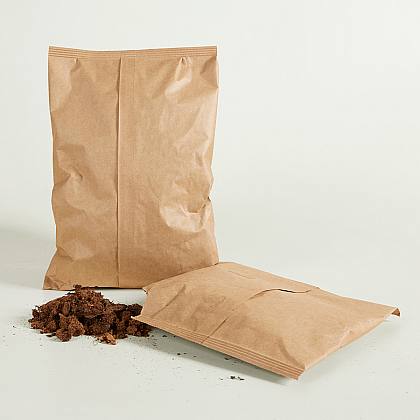Unleash the Power of Organic Vegetable Gardening
Welcome to the world of organic vegetable gardening, where the power of nature can be harnessed to grow nutritious and delicious produce.

Welcome to the world of organic vegetable gardening, where the power of nature can be harnessed to grow nutritious and delicious produce.
In this article, we will explore the art of growing and planting vegetables without harmful chemicals, focusing on natural methods that enhance taste and nutrition.
From soil preparation to location selection, vegetable selection to planting techniques and care, we will cover all the essential aspects of organic vegetable gardening.
Get ready to embark on a journey that will yield bountiful harvests and contribute to a healthier and more sustainable lifestyle.
Soil Preparation
One crucial step in organic vegetable gardening is to ensure that the soil is properly prepared before planting. This is important because it sets the foundation for healthy plant growth and maximizes the benefits of organic gardening.
One way to improve soil quality is by adding compost. Compost not only provides essential nutrients for plants, but it also improves soil structure, water retention, and drainage. Additionally, compost enhances microbial activity in the soil, which aids in nutrient availability for plants.
Another key component in soil preparation is the presence of earthworms. Earthworms help to aerate the soil, improve soil structure, and increase nutrient availability. They also break down organic matter, such as compost, into smaller particles that are easier for plants to absorb.
Location Selection
An ideal location with ample sunlight is crucial for successful organic vegetable gardening. Choosing the right spot for your garden is essential to ensure the health and growth of your plants. Here are three important factors to consider when selecting a location:
Sunlight requirements: Vegetables need at least 6 to 8 hours of direct sunlight daily to thrive. Look for a spot in your garden that receives the maximum amount of sunlight throughout the day. Avoid areas shaded by large trees or buildings that may obstruct sunlight.
Impact on plant health and growth: Take into account the location's impact on factors such as wind exposure and soil drainage. Avoid areas that are prone to strong winds, as they can damage delicate vegetable plants. Ensure that the selected spot has proper drainage to prevent waterlogging, which can lead to root rot and other diseases.
Accessibility and convenience: Choose a location that is easily accessible for watering, weeding, and harvesting. Consider proximity to a water source and the convenience of carrying tools and supplies to and from the garden. An easily accessible location will make it more convenient for you to maintain and care for your vegetable garden.
Vegetable Selection
When considering vegetable selection for your organic garden, it is important to choose vegetables that are not prone to pests and diseases. This will make planting easier and require less maintenance, making it ideal for beginners.
By selecting vegetables that have natural resistance to common pests and diseases, you can minimize the need for chemical pesticides and ensure a healthier garden. Additionally, organic vegetables offer numerous benefits, such as better taste and higher nutritional value.
To start your organic garden, ask plant shops for organic vegetable seeds and select vegetables that are suitable for your gardening skills. Some popular vegetables for beginners include tomatoes, lettuce, carrots, and beans. Planting these easier vegetables will help you learn the basics of organic gardening and set you up for success in your journey to unleash the power of organic vegetable gardening.
Planting Techniques and Care
To ensure successful organic vegetable gardening, it is essential to employ proper planting techniques and provide adequate care for your plants. Here are three key tips to help you get started:
Seed starting: Follow the instructions on the seed packaging for proper care. Some seeds require special attention, such as soaking or chilling before planting. Start the seeds in pots and then transfer them to the soil later, or directly plant them in the ground if suitable.
Organic pest control: Prevent diseases from infecting vegetable roots by maintaining soil health. Use organic pesticides if necessary, but try to focus on preventive measures such as crop rotation and companion planting. Additionally, avoid wetting the leaves when watering to prevent disease and pest issues.
General Tips and Additional Resources
Continuing from the previous subtopic on planting techniques and care, it is important to explore some general tips and additional resources that can enhance your experience with organic vegetable gardening.
One tip is maximizing small vegetable gardens. Even if you have limited space, you can still grow a variety of vegetables by utilizing vertical gardening techniques, such as trellises or hanging baskets. Additionally, consider interplanting different vegetables that complement each other in terms of growth habits and nutrient requirements. This can help maximize the use of space and increase yield.
Another tip is gardening on a budget. Organic gardening doesn't have to be expensive. You can save money by making your own compost using kitchen scraps and yard waste. Also, consider starting plants from seeds instead of buying seedlings. This can be more cost-effective and provide a wider selection of vegetable varieties.
There are several additional resources available to further enhance your organic vegetable gardening experience. These resources include books, online forums, and gardening websites that offer tips, advice, and gardening techniques specific to organic vegetable gardening. By utilizing these resources, you can gain valuable knowledge and guidance to ensure successful and sustainable organic vegetable gardening.
In conclusion, organic vegetable gardening offers a sustainable and nutritious way to grow your own produce.
By following natural methods and techniques, you can enhance the taste and nutrition of your vegetables without the use of harmful chemicals.
From soil preparation to location selection, vegetable selection to planting techniques and care, this article has provided essential guidelines for a successful organic garden.
By embracing organic gardening, you can contribute to a healthier and more sustainable lifestyle for yourself and the environment.


